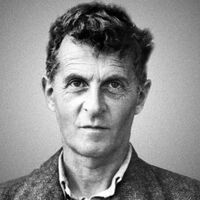
Ludwig Josef Johann Wittgenstein (26 April 1889 – 29 April 1951) Austrian philosopher who worked primarily in logic, the philosophy of mathematics, the philosophy of mind, and the philosophy of language. He is considered by some to be the greatest philosopher of the 20th century.